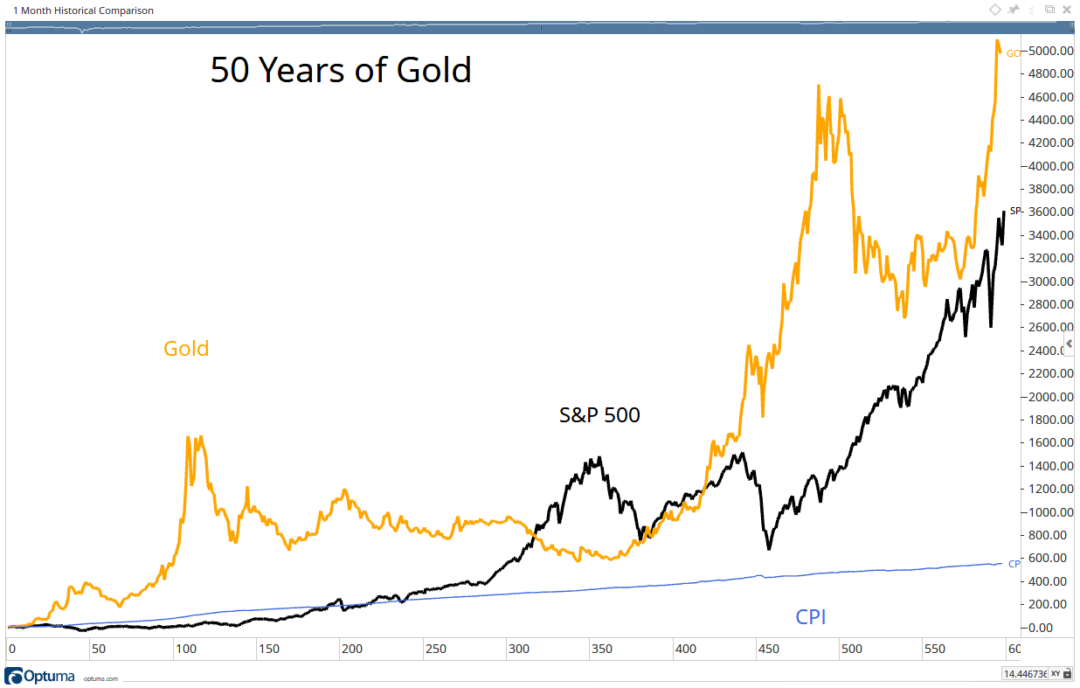Global Real Estate Hotspots - Top Cities to Invest in 2024

Emerging Trends in Global Real Estate Investment
As we navigate the ever-changing landscape of global real estate investment, several key trends are poised to shape the market in 2024. In this section, we'll delve into the most significant emerging trends that savvy investors should be aware of.
1. Growing Demand for Sustainable and Eco-Friendly Properties
The emphasis on environmental sustainability is increasingly influencing investment decisions in the real estate sector. Eco-friendly properties are gaining traction, driven by growing concerns about climate change and the need to reduce carbon footprints. Investors are now prioritizing buildings with green certifications, energy-efficient systems, and sustainable materials.
Key benefits of sustainable properties include:
- Lower operating costs through reduced energy consumption
- Enhanced property value and rental yields
- Improved occupant health and productivity
- Increased marketability and brand reputation
2. Increasing Focus on Urban Regeneration and Redevelopment
Urban regeneration and redevelopment projects are transforming cityscapes worldwide. These initiatives involve revitalizing underutilized or neglected areas, creating vibrant, mixed-use communities that foster economic growth and social cohesion.
Key opportunities in urban regeneration include:
- Revitalization of waterfront areas and historic districts
- Conversion of industrial sites into residential or commercial spaces
- Integration of green spaces and public art installations
- Implementation of smart city technologies and infrastructure
3. Rise of Proptech and Digitalization in Real Estate
The real estate sector is undergoing a technological revolution, driven by the advent of proptech (property technology). Digital solutions are streamlining processes, enhancing efficiency, and improving investor returns.
Key proptech trends to watch:
- Artificial intelligence (AI) for predictive analytics and market forecasting
- Blockchain for secure and transparent transactions
- Virtual and augmented reality (VR/AR) for immersive property experiences
- Smart building technologies for optimized energy management and security
By understanding these emerging trends, investors can make informed decisions, capitalize on growth opportunities, and stay ahead in the competitive global real estate market.
Top Cities for Real Estate Investment in 2024 As we navigate the ever-changing landscape of global real estate, certain cities stand out as beacons of growth, stability, and potential. Here are the top cities to invest in real estate in 2024. 1. Singapore: A Haven for Investors Singapore's strong economy, limited property supply, and favorable government policies create a perfect storm for real estate investment. The city-state's pro-business environment, excellent infrastructure, and high standard of living make it an attractive destination for investors. 2. New York City: Revitalization and Growth New York City's revitalized neighborhoods and growing tech industry make it an exciting investment opportunity. The city's iconic status, world-class amenities, and unparalleled diversity ensure a consistent demand for housing and commercial space. 3. London: Resilience and Infrastructure Development London's resilient real estate market has weathered Brexit uncertainties, making it an attractive investment destination. Ongoing infrastructure development, such as the Crossrail project, and the city's global financial hub status further enhance its appeal. 4. Dubai: Expo 2024 and Beyond Dubai's hosting of Expo 2024 has injected new life into its real estate market. Growing tourism, business-friendly policies, and strategic location make Dubai an essential hub for international trade and commerce. 5. Sydney: Infrastructure Boom and Housing Demand Sydney's infrastructure boom, coupled with growing demand for housing, creates a fertile ground for real estate investment. The city's iconic landmarks, beautiful beaches, and excellent quality of life make it a sought-after destination. 6. Vancouver: Diversified Economy and Limited Supply Vancouver's diversified economy, limited property supply, and stunning natural beauty make it an attractive investment option. Outdoor enthusiasts and businesses alike flock to Vancouver, ensuring consistent demand. 7. Berlin: Affordable Prices and Cultural Hub Berlin's affordable prices, rich cultural scene, and thriving startup ecosystem make it an exciting investment prospect. Germany's economic stability and Berlin's growing popularity with tourists and businesses ensure long-term growth. 8. Tokyo: Olympic Legacy and Innovation Tokyo's Olympic legacy has transformed its infrastructure and real estate landscape. This, combined with the city's cutting-edge innovation and world-class amenities, makes Tokyo an attractive investment destination. 9. Miami: Growing Tech Industry and Latin American Hub Miami's growing tech industry and status as a Latin American business hub create a compelling investment case. The city's iconic beaches, vibrant culture, and tourism industry ensure consistent demand. 10. Paris: Timeless Appeal and Cultural Attractions Paris's iconic status, stunning architecture, and world-class cultural attractions make it a timeless investment opportunity. The city's enduring appeal to tourists, businesses, and investors ensures long-term stability. Key Considerations for Real Estate Investment in 2024 When investing in these top cities, consider factors such as: Local market trends and regulations Economic indicators and growth prospects Infrastructure development and transportation links Demand for housing and commercial space Cultural and lifestyle attractions By understanding these factors and investing in the right cities, savvy investors can capitalize on the potential of the global real estate market in 2024.
Key Factors to Consider
When evaluating the top cities to invest in global real estate, several key factors come into play. These critical considerations can significantly impact the potential return on investment and overall success of a property investment. Here are the essential factors to consider:
Economic Stability and Growth
A city's economic stability and growth prospects are crucial indicators of its potential for real estate investment. A thriving economy typically attracts businesses, talent, and residents, driving up demand for housing and commercial space. Look for cities with:
- Strong GDP growth rates
- Low unemployment rates
- Increasing foreign investment
- Diversified industries and sectors
Regulatory Environment and Tax Incentives
A favorable regulatory environment and attractive tax incentives can significantly influence investment decisions. Consider cities with:
- Business-friendly policies and regulations
- Competitive tax rates
- Streamlined permitting and licensing processes
- Government incentives for foreign investors
Infrastructure Development and Transportation
A well-developed infrastructure and efficient transportation system are vital for a city's attractiveness and livability. Look for cities with:
- Modern airports and seaports
- Extensive public transportation networks
- High-quality roads and highways
- Planned or ongoing infrastructure projects
Demographics and Population Growth
A city's demographics and population growth trends can impact property demand and rental yields. Consider cities with:
- Growing population and workforce
- Increasing demand for housing and office space
- Diverse age and income demographics
- High quality of life and livability
Sustainability and Environmental Considerations
As environmental concerns and sustainability become increasingly important, cities prioritizing green initiatives and eco-friendly development will attract investors and residents. Look for cities with:
- Renewable energy sources and green infrastructure
- Energy-efficient buildings and sustainable architecture
- Green spaces and parks
- Environmental policies and regulations
By carefully evaluating these key factors, investors can make informed decisions and identify the most promising cities for real estate investment in 2024.
Outlook for 2024
As we enter 2024, the global real estate market is poised for significant transformation. Several key trends are expected to shape the industry, presenting opportunities and challenges for investors.
Continued Growth in Asia-Pacific Regions
The Asia-Pacific region will likely remain a hub for real estate growth in 2024. Cities like Singapore, Bangkok, and Ho Chi Minh City are anticipated to see significant investment inflows due to their strong economic fundamentals, urbanization, and infrastructure development.
Resurgence of European Markets
After a period of sluggish growth, European markets are expected to rebound in 2024. Cities like Berlin, Madrid, and Amsterdam are attracting investors with their stable economies, innovative hubs, and cultural attractions.
Growing Focus on Emerging Markets and Niche Cities
Investors are increasingly looking beyond traditional hubs to emerging markets and niche cities offering higher returns. Cities like Lagos, Buenos Aires, and Kuala Lumpur are gaining attention for their growth potential and relatively affordable valuations.
Increasing Importance of ESG Considerations
Environmental, Social, and Governance (ESG) factors will play a critical role in real estate investment decisions in 2024. Investors will prioritize sustainable buildings, energy-efficient designs, and socially responsible developments to mitigate risks and ensure long-term value.
As the global real estate landscape evolves, investors must stay informed about these trends to capitalize on emerging opportunities and navigate potential challenges.
Investor Insights When it comes to investing in global real estate hotspots, savvy investors know that success requires more than just identifying the right location. In this section, we'll delve into the key strategies and considerations that can make all the difference in achieving your investment goals. Diversification and Risk Management Effective real estate investing involves spreading risk across different asset classes, sectors, and geographic locations. By diversifying your portfolio, you can mitigate potential losses and maximize returns. Consider combining direct property investments with real estate investment trusts (REITs), real estate mutual funds, or real estate crowdfunding platforms. Long-term Strategy and Patience Real estate investing is a long-term game that requires patience and perseverance. It's essential to adopt a five-to-ten-year perspective, allowing you to ride out market fluctuations and capitalize on steady appreciation. Focus on stable cash flows, rental income growth, and long-term capital appreciation. Local Market Expertise and Research Understanding local market dynamics is crucial for making informed investment decisions. Partner with local experts, conduct thorough research, and stay up-to-date on market trends, regulatory changes, and infrastructure developments. This expertise will help you identify emerging opportunities and avoid potential pitfalls. Adaptability to Market Trends and Changes Real estate markets are constantly evolving, driven by factors such as demographic shifts, technological advancements, and environmental concerns. Stay adaptable and responsive to changing market conditions, and be prepared to adjust your investment strategy accordingly. Key Takeaways for Investors Diversify your portfolio across different asset classes and geographic locations Adopt a long-term perspective (5-10 years) Partner with local experts and conduct thorough research Stay adaptable and responsive to changing market trends
Conclusion: Navigating the Global Real Estate Landscape
As we look to the future of global real estate investment, it's clear that success will depend on a combination of thorough research, adaptability, and a keen understanding of the diverse opportunities available.
Research and Due Diligence: The Keys to Success
Investors seeking to capitalize on the potential of global real estate hotspots must prioritize research and due diligence. This involves staying up-to-date on market trends, regulatory changes, and local economic conditions. By conducting thorough analysis and seeking expert advice, investors can mitigate risks and identify opportunities that align with their investment goals.
Effective research also involves considering factors such as property type, location, and potential for growth. Whether focusing on residential, commercial, or mixed-use developments, investors must carefully evaluate the strengths and weaknesses of each market.
Adaptability and Flexibility in a Shifting Market
The global real estate landscape is constantly evolving, with market shifts driven by factors such as economic fluctuations, demographic changes, and technological advancements. To navigate these changes successfully, investors must remain adaptable and flexible.
This may involve adjusting investment strategies in response to changing market conditions or exploring new opportunities in emerging markets. By staying agile and responsive, investors can capitalize on unexpected trends and minimize potential losses.
A World of Opportunities: Diverse Investment Options Across Global Cities
Global cities offer a diverse range of investment opportunities, catering to varied investor preferences and risk tolerance. From established hubs like New York and London to emerging markets in Asia and Latin America, each city presents unique advantages and challenges.
Investors can choose from a spectrum of investment types, including luxury residential properties, commercial office spaces, industrial parks, and mixed-use developments. Additionally, various investment structures, such as joint ventures, real estate investment trusts (REITs), and crowdfunding platforms, provide flexibility and accessibility.
Ultimately, navigating the global real estate landscape requires a nuanced understanding of local markets, adaptability in the face of change, and a commitment to thorough research and due diligence. By embracing these principles, investors can unlock the potential of global real estate hotspots and achieve long-term success.
















Comments ()